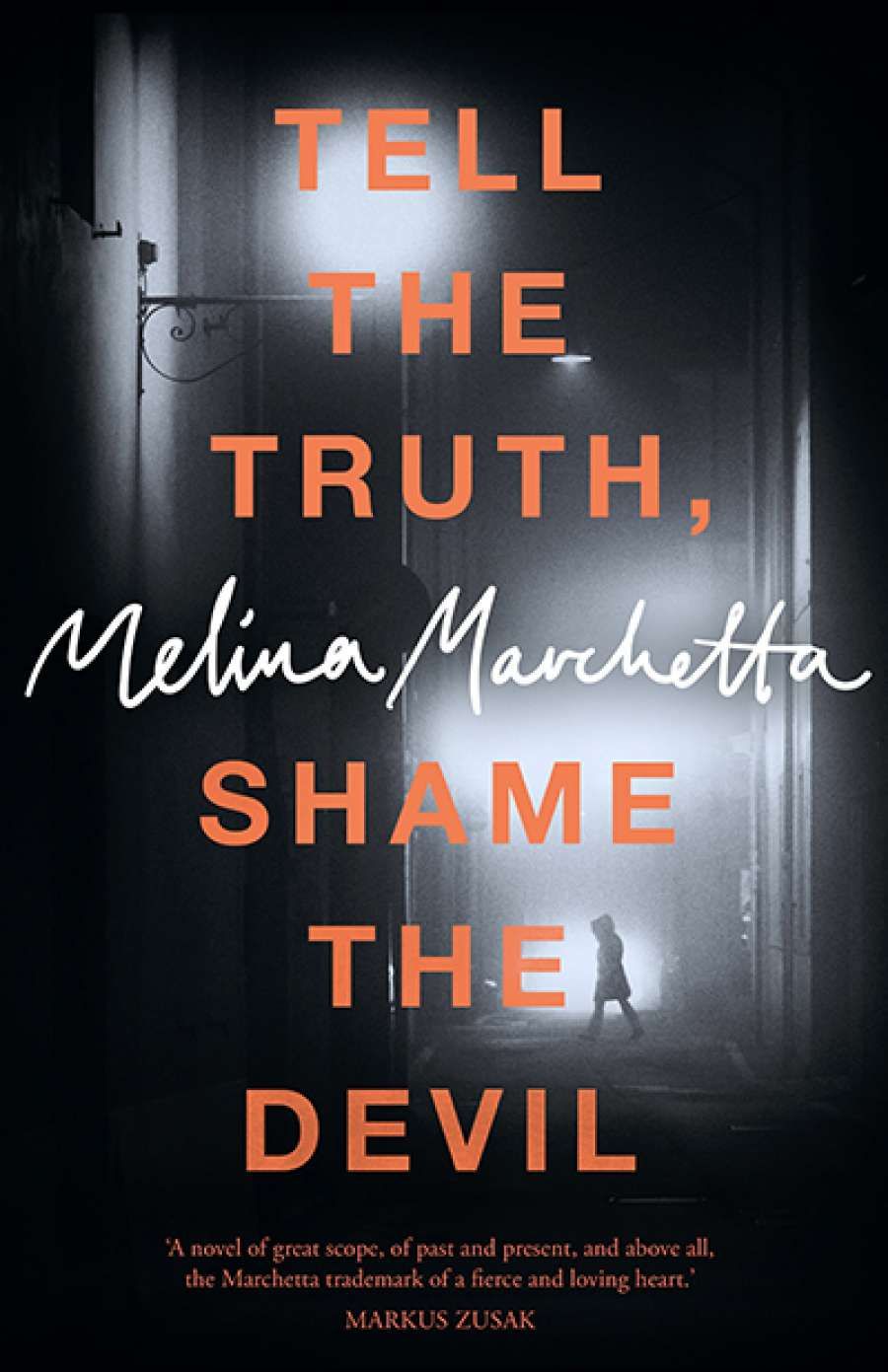
- Free Article: No
- Contents Category: Fiction
- Custom Article Title: Agnes Nieuwenhuizen reviews 'Tell the Truth, Shame the Devil' by Melina Marchetta
- Book 1 Title: Tell the Truth, Shame the Devil
- Book 1 Biblio: Viking $32.99 pb, 405 pp, 9780670079100
In a Calais car park, a bomb explodes on a tour bus of British students. Nearby are buses with French and German students. A few children are killed and three seriously maimed on the British coach. Mayhem ensues as police, parents, and the media descend. Chief Inspector Bish (Bashir) Ortley, sad and currently suspended, is made aware of information that will propel the story. Ortley leaps into his car and heads for Calais. His daughter Bee (Sabine) was on the tour bus, as was seventeen-year-old Violette LeBrac Zidane. How Violette managed to get from country Australia, where she has been living with grandparents, and onto the bus is unclear. Thirteen years ago, Bish had to deal with a horrific bombing in a London supermarket that killed twenty-three people. The bombers became known as the Brackenham Four. One of these was Noor Sarraf, daughter of the chief suspect and Violette’s mother. She was accused of making the bomb and imprisoned for life.
Another strand in the story is the mysterious death of Violette’s father, Etienne LeBrac, believed to have committed suicide, leaving four-year-old Violette alone in the wild. Members of the neighbouring Sarraf and Bayat families are key players, particularly soul mates Layla Bayat and Jimmy (Jamal) Sarraf, the latter now exiled in Calais. Eventually barrister Rachel (Bish’s ex) and solicitor Layla will team up to mount a case against Noor’s conviction. The Home Office man on the case went to school with Bish, and the daughter of the investigating French Inspector was on the French bus (there is a connection!).
Shortly after the investigation into the Calais bombing begins, Violette disappears with one of the younger passengers, Eddie Conlon. The only clue is an unsigned postcard Violette sent to her mother in jail saying, ‘I’m going to shame the devil’, paraphrasing from the line in Henry the Fourth Part One, which Noor knew Violette had read at school. Violette appears to be on a truth-seeking mission and the hunt is on for her, for the bomber, and for possible links to the original bombing. The action hurtles on; when a second bomb threat is made, everything goes into overdrive.
 Melina Marchetta (photograph by Kiren)
Melina Marchetta (photograph by Kiren)
However, if you take your time with this book, problems become apparent. Far too many characters with way too many links between them stretch credibility. Young Eddie, a significant character, says awkwardly: ‘I’m so confused ... I can’t get heads or tails of who’s related.’ Marchetta packs in too many issues, important and topical though they may be: Anti-Muslim sentiments; racism; mistrust of government and police; the effects of divorce and parenting styles; variations in class and ethnic values and lifestyles; the role of the media, including the pros and cons of social media. There is even an imminent birth to factor in. The Algerian War of Independence is linked to current tensions between the French and Arabs in France. The London bombings of 2005 are referenced. In the febrile atmosphere following the bombing, the teenagers and some parents establish connections via social media, sharing information or hiding it, muddling the investigation.
The teenage characters – their conflicts, uncertainties, fickle relationships, and spirited behaviour – drive the story as much as the frenetic action and the need to know how it will all turn out. The acute insights and observations of the young people, and their ability to notice details and behaviour the adults miss – signature Marchetta traits – enliven the narrative. Compassionate, clever Bish holds it all together. Zusak says in his endorsement: ‘[The novel has] above all, the Marchetta trademark of a fierce and loving heart.’ Perhaps too much ‘heart’, too much busyness, and not enough toughness and clarity.


Comments powered by CComment